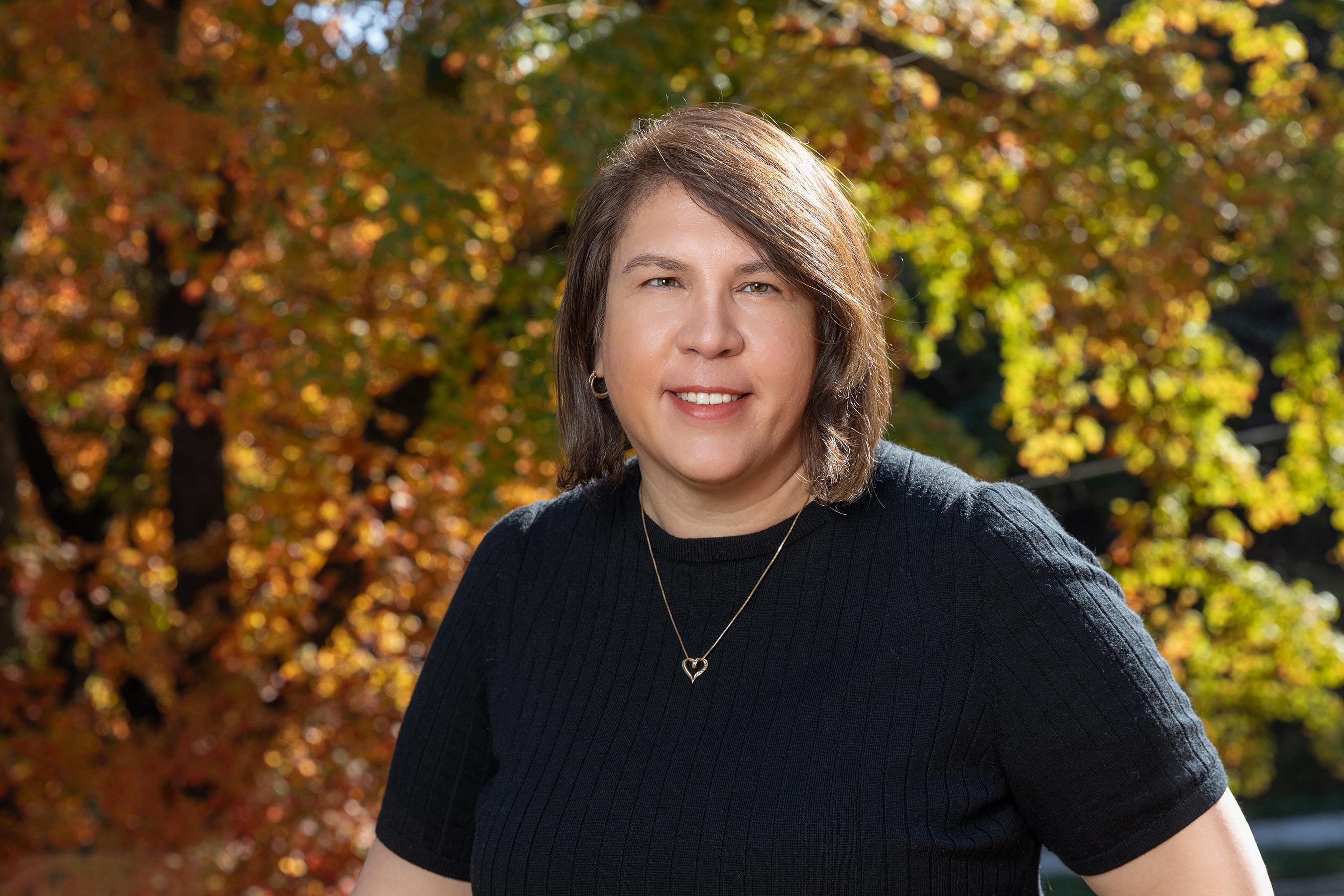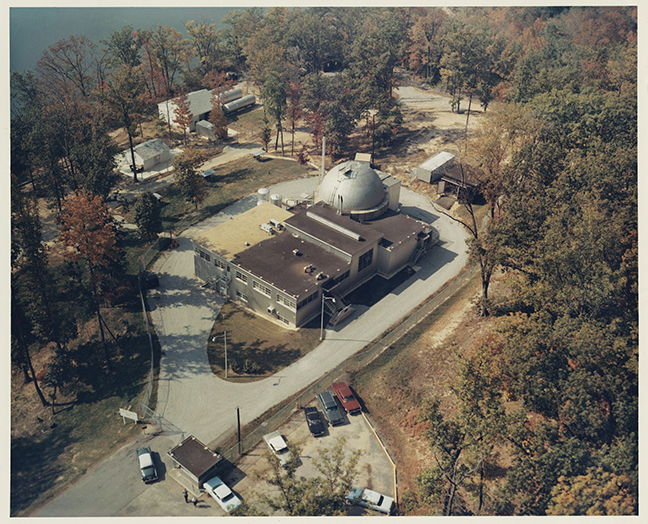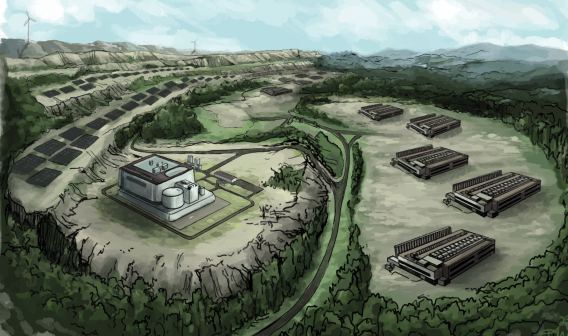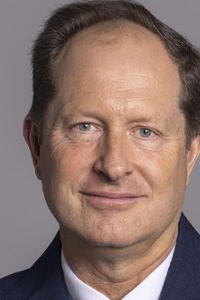
April Wade is executive director of the Virginia Nuclear Energy Consortium (VNEC), which represents stakeholders invested in research and development, workforce development, innovation, and advocacy for the nuclear energy industry. VEDP President and CEO Jason El Koubi spoke with Wade about VNEC’s mission and activities, Virginia’s surprising history in nuclear energy, and the role nuclear energy can play in a robust power generation industry working toward ambitious clean energy goals.
Jason El Koubi: You’ve been a terrific partner in many, many efforts related to cultivating the nuclear energy industry in Virginia. Can you give us a high-level overview of the Virginia Nuclear Energy Consortium’s mission and what you’re doing?
April Wade: We were established in 2013 by legislation that created two organizations, one of which was the Virginia Nuclear Energy Consortium Authority, or VNECA. That is actually run through the Virginia Department of Energy, and its board members are appointed by the governor.
The legislation also directed VNECA to establish a nonprofit entity, basically the working arm. That’s my organization, the Virginia Nuclear Energy Consortium, or VNEC. We are a partnership between industry and academics. Our goal is to sustain the Commonwealth’s global leadership in nuclear energy through business development, research, workforce development and training, and advocacy for the nuclear industry.
El Koubi: How does nuclear fit into the overall power generation industry? How can nuclear help Virginia and the wider country meet our ambitious clean energy goals?
Wade: Nuclear reactors generate about 90% of the Commonwealth’s carbon-free energy and about 30% of all its electricity. Nuclear power is the best option for generating large amounts of electricity that is safe, clean, reliable, and cost-effective. Currently, nuclear power provides 19% of U.S.-generated power. The Commonwealth has a growing economy with significant energy needs going forward. As we continue to decarbonize the electric grid — which requires energy to be supplied around the clock — new nuclear must be a part of the solution. Internationally, to meet the clean energy goals that have been set by 2050, we need more nuclear power in the mix across the globe.
El Koubi: As we look to expand the use of nuclear power — a carbon-free source of electricity generation — some perception issues out there definitely need to be overcome. How can the nuclear industry change public perceptions of nuclear power?
Wade: We actually have more support for nuclear power than we’ve ever had in this country. Gallup did a survey last spring that indicated 55% of Americans support nuclear power. We also are seeing a surge of support by the younger generation, and we’re also seeing it in legislation — for example, VNEC and VNECA; that legislation which supported us had bipartisan support. You’re seeing it at the national level, too. The Infrastructure Law was a bipartisan bill, the Inflation Reduction Act was a bipartisan bill, and all had positive impact on the nuclear industry. For example, the Inflation Reduction Act, for the first time, provides that new nuclear receives the same federal tax incentives that other carbon-free energy resources have received for years. This puts nuclear on a level playing field with other clean energy resources.
But can we do more? We need to talk about the need for more nuclear and new technologies. The industry, like many industries, is going through a technology revolution. Small modular reactors, micro-reactors, and other advanced reactor technologies have the potential to dramatically alter the way nuclear is deployed and operates, making nuclear even more attractive as part of the clean energy mix. We need a lot of power. We’re using more power than we ever have. There’s a demand on the grid we need to meet. And with nuclear power in that mix, we can meet those goals.
El Koubi: One of the things I hear from people looking at the growth in power consumption in our country and looking for ways we can meet that growth while also decarbonizing is that nuclear has to be a core part of that solution for a wide variety of reasons.
As you mentioned, some perception issues are still out there, and it sounds like public opinion is certainly improving on a lot of fronts. One of the things you hear most frequently as an objection is nuclear waste. What are nuclear power companies doing to solve that problem of nuclear waste?
Wade: Used nuclear fuel is actually stored safely on-site at every nuclear facility. It’s heavily regulated by the U.S. Nuclear Regulatory Commission, the Department of Energy, and the Environmental Protection Agency. For over half a century, we have safely handled and stored used nuclear fuel. But it can also be reprocessed and provide more energy. That is not something we currently do in the United States, but countries like France do. It’s certainly an area that could be explored here. Some advanced technologies under development may even consume spent fuel to create energy. Like I said, there is a lot of change and advancement happening.
What is the plan long-term? That’s really in the federal government’s hands, and they’re looking into options for spent fuel. One of those options is interim storage. A couple of companies have license applications in for interim storage, but those are not up and running yet. Storage at Yucca Mountain in Nevada was talked about at one time. That project wasn’t able to go through. But again, it’s been stored safely on-site at commercial nuclear reactor sites.












